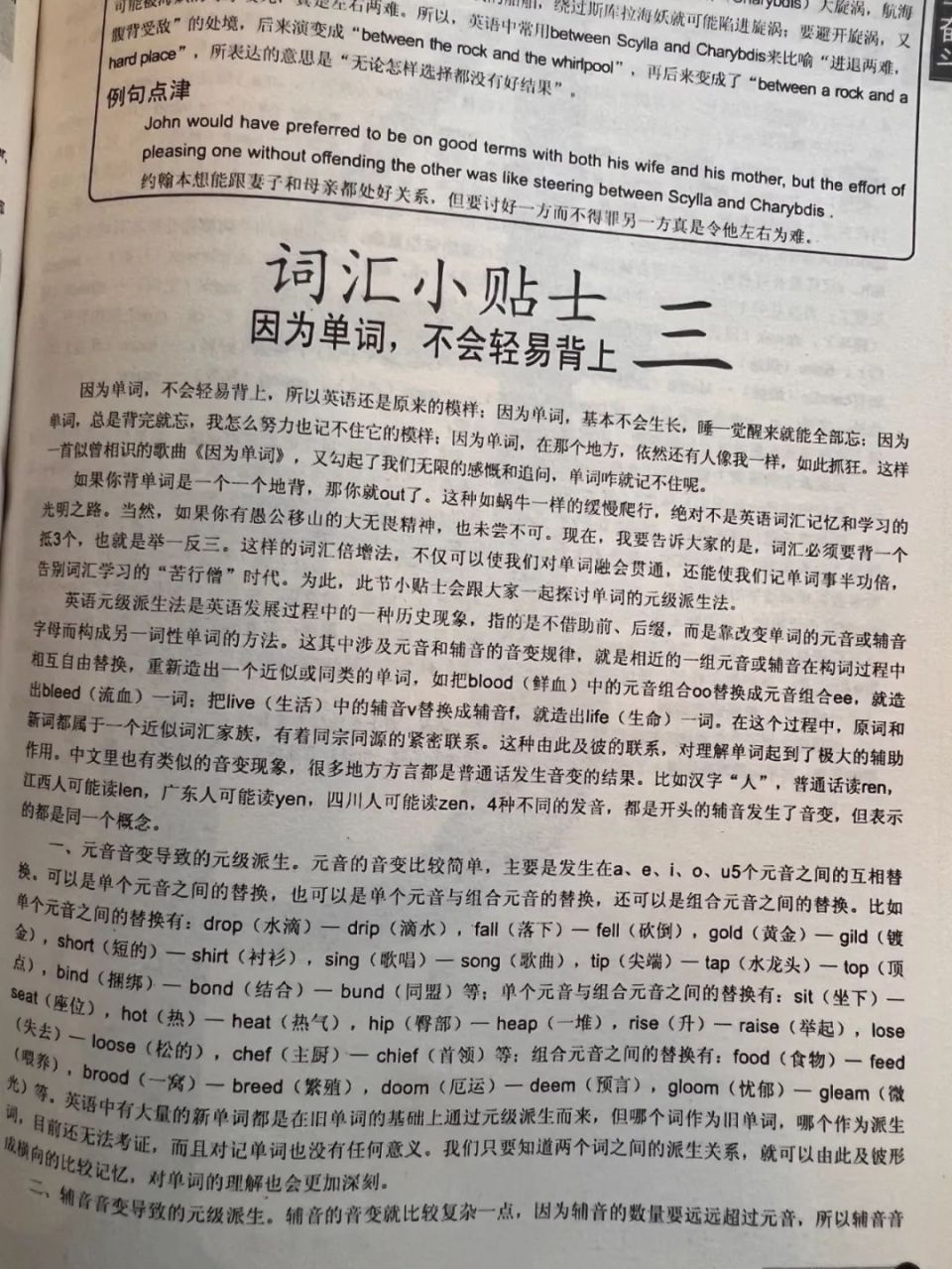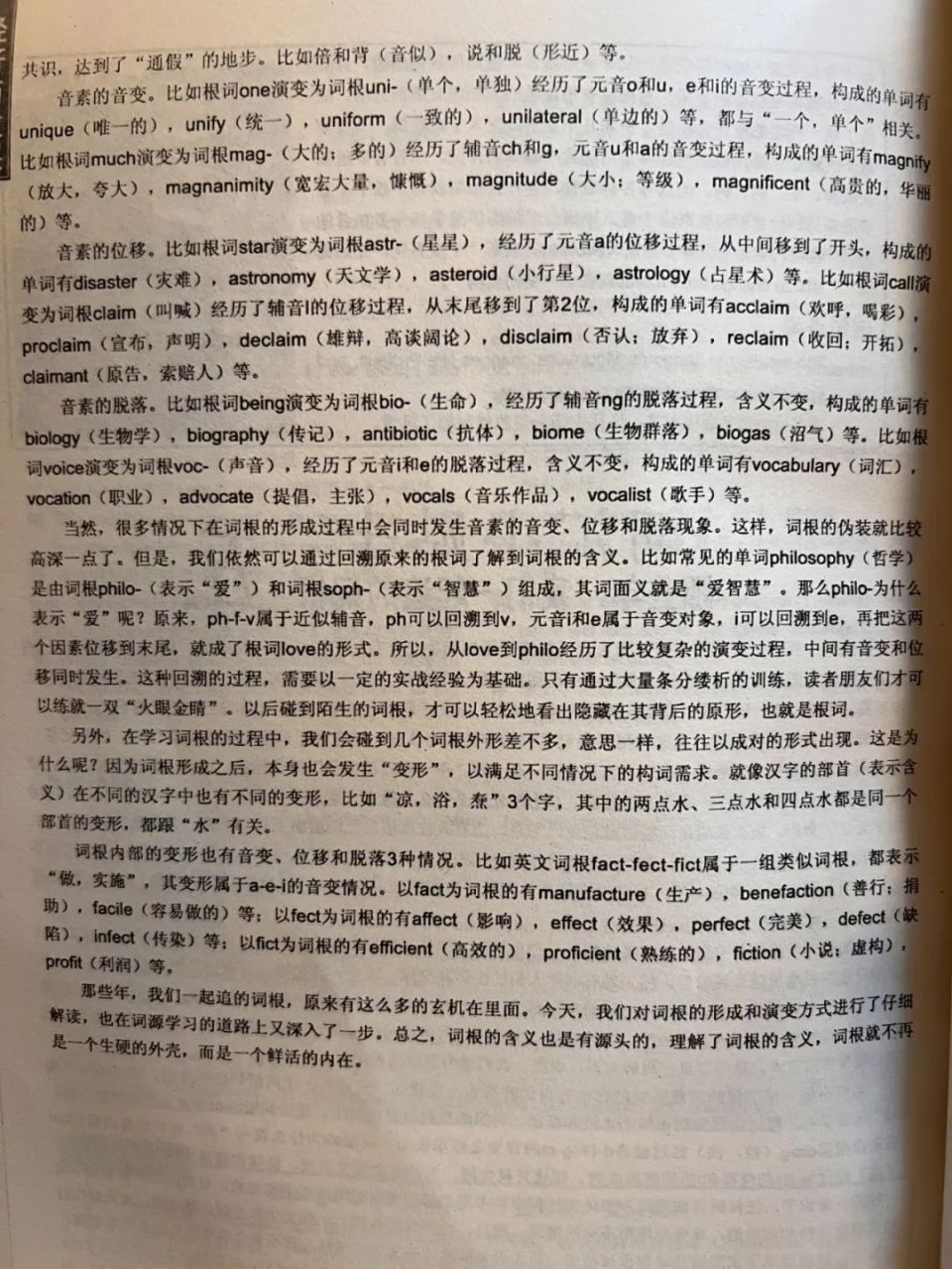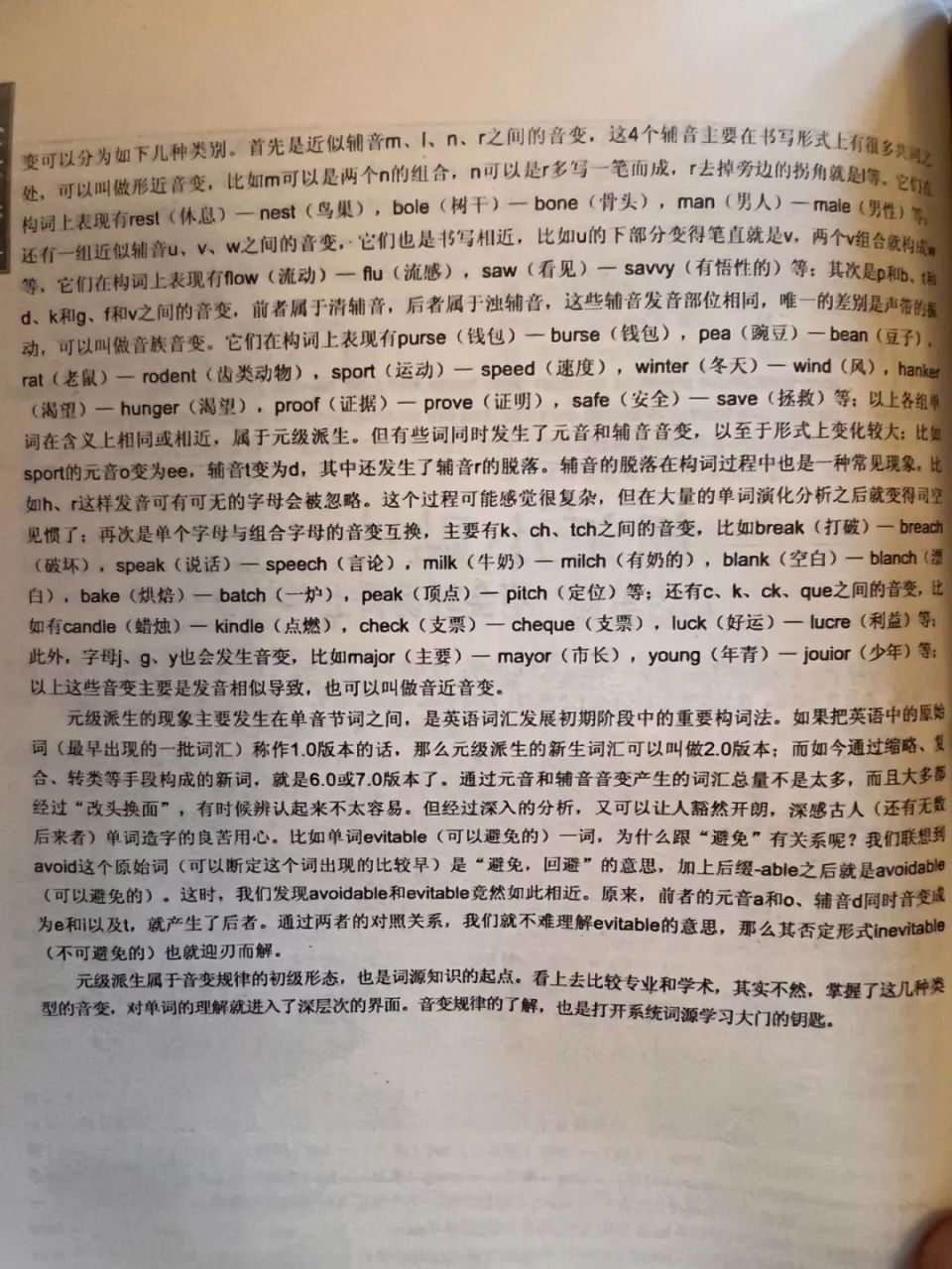永远记住,英语听力这样练:
1、要一直换内容,move to next 保持大脑对内容好奇,不要重复。
2、不要担心跑神,分心再把意识拽回来就好。
3、 也要重复,但是集中听之前漏掉的部分,发现新感悟。
4、 听完之后要去查不懂的,然后读熟,再回去听,做到闭环。
You need repetition and novelty after a while. If you’re listening to the same thing over and over again, the brain is picking up less and less. Hi there, Steve Kaufman here. Today I want to talk about listening skills, how to get better at listening, and how to use listening to learn a language. Remember, if you enjoy these videos, please subscribe and click on the bell for notifications.
你既需要重复也需要新奇,二者间隔进行。因为如果你总是一遍一遍又一遍重复听同样的内容,那么大脑能够从中获得的东西会越来越少。大家好,我是史蒂夫·考夫曼。今天我想谈谈听力技能,听的方法,如何提高听力,如何通过听来学习语言。如果喜欢这个视频,可以关注我,打开通知提醒。
As you know, I consider input, listening and reading, to be the keys to learning a language. You have to get the language into you. It has to come from outside. You have to get your brain used to a new language. This is best achieved through listening and reading. Reading helps you acquire more words, but listening gets your brain used to the language. Of course, listening comprehension is a tremendously important skill. If you can’t understand what people are saying, it’s very uncomfortable and you can’t have a meaningful conversation.
如你所知,我一直认为听力和阅读这两方面的输入是学习语言的关键。你必须让语言融入你,语言来自外部,你得让你的大脑习惯一门新的语言。最好的实现方法就是通过听和读。阅读帮助你认识更多的词汇,但听可以帮助你的大脑习惯一门语言。当然,听力理解是一项非常重要的技能。因为如果你想与人交流,我们都希望能够使用同一种语言沟通,但如果你听不懂别人在说什么,听不懂其他人的话,你就会很难受,也无法进行有意义的对话。
So, how do you use listening to get better in the language, and what are the tips to get better at listening? First of all, it depends on each person. I can’t sit down and just listen. I’ve tried it. If I sit in a comfortable chair and say I’m going to spend half an hour listening to a podcast or something, I can’t do it. My mind wanders. If I have dedicated study time, I read or work on my iPad with LingQ. So, where does the listening come in?
那么你如何通过听来提高语言水平呢?以及有什么技巧可以让你提高听力?首先,这是因人而异的。比如我就无法安静地坐下来听。我试过,如果我坐下来听,无论我在听什么内容,只要我坐在一个舒服的椅子上,我说我要花半个小时,听这集播客或别的什么东西,我根本就做不到。我会一直走神,无法集中精力。如果我拿出一段时间专门来学习,我会选择阅读,或者我会用iPad,学习LingQ上的课程。那么该什么时候听呢?
Listening has the tremendous advantage that we can do it wherever we are. I often use AirPods. I recently bought a new kind of AirPod that sits outside the ear and works really well. I went jogging yesterday and could hear very well. I can listen first thing in the morning, while making breakfast, during the day, in the car—there’s lots of time to listen.
听有一项巨大的优势,就是随时随地都可以进行。我经常会用AirPods,我最近还买了新的耳机,不需要塞入耳朵,更加方便。昨天我去慢跑了,效果很好,听得非常清楚,因为它不会塞住我的耳朵。我也会在早上刚起床的时候听,起床后我有一个七分钟的锻炼时间,我会边练边听,边做早餐边听,白天锻炼的时候我也会听,在车上的时候我也会听。所以你其实有很多时间可以去听。
People ask if I always focus when listening. It’s impossible to 100% focus while listening. In language learning, you have to accept imperfection. When you speak, you make mistakes. When you listen, there will be lots of areas you don’t understand. Your mind will wander. That’s fine as long as you come back. Maybe I’m only focused for half the time when listening in the car for 30 minutes. I don’t worry about it. I know it’s not a hundred percent of the time, but I’m exposing my brain to the language.
有人又会问了,你在听的时候能够始终集中注意力吗?听的时候想要百分百的集中是不可能的。语言的学习涉及到方方面面,你必须能够接受不完美。当你在说话的时候可能会犯错,当你在听的时候会有很多地方你听不懂,也会有些时候你没能集中到你在听的内容上,你走神了,你的大脑考虑别的东西去了,这没什么,只要你还能回得来就行。比如说我在车上的30分钟,要听点什么内容,也许我只有一半的时间能集中去听,或者其实我也不知道具体的数字是多少,因为我不在乎这些,但我能确定的是肯定没有全程都在听。但无论我能听进去多少,我起码听了,我让我的大脑接触这些语言,我的大脑会逐渐习惯这种语言。
One important thing is that you can’t continue to listen to your target language and not understand anything or only understand five percent. That’s very inefficient. In the early stages of a language, I don’t understand anything, but I read it afterward, look up words, review them in LingQ, read again, and then listen. I still don’t understand when I listen, but that’s okay. From experience, I know that what initially is just noise will eventually become comprehensible through a process of reading, listening, looking up words, and listening again. More and more of it will make sense over time.
还有一件很重要的事是,你在听你要学的那门语言的时候,不能一直一点都听不懂或者只能听懂百分之五。根据我的经验来说,这样是非常低效的。所以当我在初学一门语言时,如果我要听一些内容,我肯定完全听不懂,但听完后我会去读它,我会查我不懂的词,之后对它们进行复习,然后再读,再听。我还是会不懂,即使在读和查词的过程中,我能够看懂一部分,但当我去听的时候,我还是不懂,但这并不影响我。从我过去的经验中我了解到,假以时日,一开始对我来说只是噪音的东西,通过阅读和听的过程,然后再读,进行查词,然后再听,最终我能够理解的内容会越来越多。
Don’t listen to the same lesson over and over again at one sitting. The brain requires repetition and novelty. You can listen to an item a few times and then move on to the next item, even if you don’t fully understand the first one. You start with lesson one, listen, read, listen again, and understand 20–30%. Then move on to the next one. Don’t try to master any particular lesson. It’s all about exposure and helping the brain get used to the language. You need repetition and novelty. When you listen to the same thing over and over, the brain picks up less and less. So, move on to the next lesson and keep pushing yourself forward. Maintain that balance between repetition and novelty.
不要总是一遍又一遍地重复听同样的内容。换句话说,我们的大脑需要重复也需要新奇。因此你可以把一个内容听几次,然后就去听新的内容,即使你还没有完全理解前一个。比如你开始听一个内容,你重复听了几遍,然后对它进行阅读,然后再听,这时候你能理解20~30%了,然后就听下一个内容。不要试着去完全掌握某一个内容,重要的是多暴露,重要的是帮助你的大脑习惯这门语言。你既需要重复也需要新奇,二者间隔进行,因为如果你总是重复听同样的内容,你的大脑从中吸收的就会越来越少,所以你需要多去接触新的内容,所以你要不断推动自己,保持重复和新奇的平衡。
Research shows that after the third, fourth, or fifth time we read or listen to something, we learn less and less. So, keep moving forward with new material. Don’t worry about losing focus or not understanding everything. Challenge your brain with new material, but also have enough repetition so that you start to notice things you didn’t notice the first time.
有一些涉及对大脑学习的影响因素的研究表明,当我们重复听或读某些内容,到了第三遍、四遍、五遍,我们实际上能学到的越来越少,所以你必须继续学习新的内容。不要担心会走神,不要担心你听不懂的部分,不断用新的材料挑战或激励你的大脑,但同时也要有足够的重复,这样你才能注意到一些你一开始没能留意的细节。
I can listen to a mini-story I’ve listened to 30–40 times before and suddenly notice a verb pattern or form that I hadn’t really noticed before, even though I knew the rule vaguely. The 31st time I listened, I noticed it in a different way. So, give yourself a chance to notice things when you go back for that additional pass through the same material. You don’t have to notice everything; you can lose focus, but there will be times when you notice certain things in there that will help you in your gradual acquisition of the language.
这是关于听的另一个很重要的点,我可能会听一个我已经听过三四十次的小故事,我对这个故事非常熟悉,但我仍可能突然注意到了一个我之前没注意到的句型、动词规则或变形。尽管之前我模糊地知道一些,但当我第31次听的时候,我对它有了不同的理解。所以当你额外多听几次同一份材料时,实际上给力自己机会探索新的东西,所以你既需要重复又需要新奇,但当你在进行重复的过程时,要让自己能够注意到某些新的东西,你不需要一字不落,你可以偶尔走神,但你总能从中注意到一些东西,这将帮助你逐渐掌握这门语言。
Remember that listening comprehension is the goal. It’s not going to be perfect, but it will gradually improve. The better your listening comprehension, the better your ability to have conversations. But again, give yourself a variety between repetitious material and new challenging material. Combine reading with listening and try to focus on certain aspects of pronunciation that you maybe didn’t notice before. Some of the things you didn’t notice on the first, second, or fifth time, you may notice the 20th time you listen. The process of language acquisition is gradual. If you listen and read and still don’t understand, don’t get frustrated. That’s normal.
记住,理解你所听的内容是一个目标,也许做不到完美,但它将逐渐实现。你的听力理解越好,会话沟通能力也就越强。但是一定要在重复中穿插着变化,重复的内容和新的具有挑战性的内容都要有,同时结合听和阅读,尝试关注那些你之前听没注意到的方面。要注意某些你在第一次听、第二次听或第五次、第十次听没注意到的东西,可能会在第二十次听的时候被你捕捉到。习得一门语言的过程是渐进的,所以你一开始听不懂也不要气馁,如果你听了又读,再听再读,还是不懂,也不要气馁,这很正常。
I prefer to be listening and doing something else, like cleaning up the garage. Listening, fading out, focusing in again works better for me than trying to sit down and listen for half an hour. The exception is if you’re watching a movie, which is a form of listening. It’s rewarding because it’s fun to watch a movie. You can see the people and feel as if you’re participating with them. That’s why series on Netflix are so great. If it’s the same group of people interacting all the time in the series, you feel like you’re a part of them and get a sense of being in that cultural sphere, which is good.
另外,至少就我来说,我一般都是一边听一边做别的事情,比如打扫车库之类的,听一会,走神,再回过神来,这对我来说比让自己坐下来专注地听半个小时效果要好。一个例外的情况就是,如果你在看一部电影,这也是听的一种形式,但你同时在看和听,这算是一种奖励性的形式,因为看电影很有趣。你可以看到那些人,你可以感受到就像自己成为了其中的一部分一样,这就是为什么人们都喜欢看网飞上的剧集。如果在一部电视剧中始终是同样一群人在出演,你看的时候就会觉得好像参与到了其中,你会觉得融入了那种文化,那种氛围,这会让你感觉很棒。
But I consider videos, movies, and TV series more of a reward. You have to develop the ability to listen without seeing what’s going on. Initially, you can use repetitious material like mini-stories. Eventually, move on to audiobooks where just hearing the words conjures up meaning for you. As you build up to that level of listening comprehension, you’re preparing yourself to become fluent in the language.
但我不会选择这样一种方式,我更愿意把这些视频、电影、电视剧当作一种有趣的奖励,但你要训练自己在没有画面的情况下听懂内容的能力。一开始你可以选择一些小故事作为重复听的材料,之后可以去听有声书,直到你可以在听到这些内容的时候就能想到它代表的意思,这样你所学的语言进入你的大脑后会自动被你理解。当你的听力理解能力提高到这个水平时,你差不多就能流利地应用这门语言。
So, my advice is to treat listening and listening comprehension not only as a primary goal in language learning but also as an important way of helping your brain become accustomed to the language. I hope that was helpful. Thank you for listening.
这就是我对听以及听力理解的一些建议,不仅仅是作为学习语言的一个主要目标,还要把它当作一种帮助你的大脑习惯于某种语言的方式。希望这对你有所帮助,感谢你的收听。
By: Steve Kaufman
如果如果你的单词量一直涨不上去,怎么背单词都没有用,但又希望突破到七八千甚至一万,送你一本单词书。拥有这本书就如同孙悟空拥有了一双火眼金睛,从此看到任何单词,你都能穿透单词的表象抵达本质,你都能够连词成串,举一反三,实现词汇量的指数级增长,并且根深蒂固在你的记忆里。



